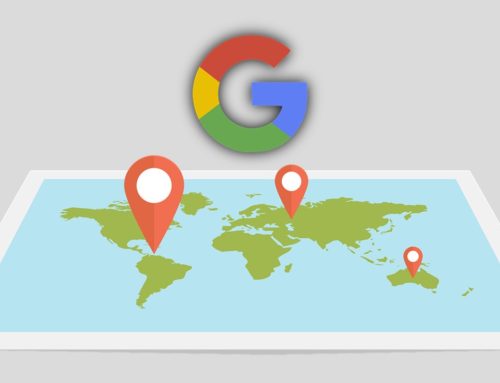Artificial Intelligence has always driven me crazy for its ever-evolving technology. The AI technology of search engine giant Google and Microsoft Bing are taking the world on stride with their capability to solve the user query within seconds. Featured Snippets/Q&A are artificial intelligence-based search features of Google and Bing, respectively, that return the best matching answer for any search query.
While Bing calls this search feature Q&A, Google uses the term featured snippets. Google defines it as snippets enclosed in a special box shown at the top with a format different from the usual snippet. Bing also displays Q&A results at the top in a box format. Apart from the simple Q&A type results, Bing is purposeful to deliver more intelligent answers to its users. For example, comparisons, cumulative answers from multiple resources, hover-over definitions are some of the unique search features of Bing. And each new search feature is making me a fan of Bing.
Both Bing and Google are using advanced deep-learning methodologies to enable their systems to understand, recognize, and show the best results to cater to the requirements of their users.
Interestingly, with its evolving technology and collaborations, Bing has improved its global search market share to 6.43 % (as of July 2020); Google is undoubtedly leading the global search market with 86.86%. Source
With the new technology advancements and to improve its search market, Microsoft is on a go-to to make Bing a semantically popular search engine. Bing has included new data highlighting techniques. These not only meet the user requirements but also maintains a desirable CTR for webmasters.
I am curious about a comparative study between the two search engines.
Let us compare Google featured snippet and Bing Q&A search features.
Bing Q&A vs. Google Featured Snippet Format:
Both Google and Bing use an almost similar format to display direct answer search results.
While Google returns a web page URL before its Title, Bing does it vice versa. Refer to the following screenshots to get a clear view of the direct answer search results displays by two search engines.
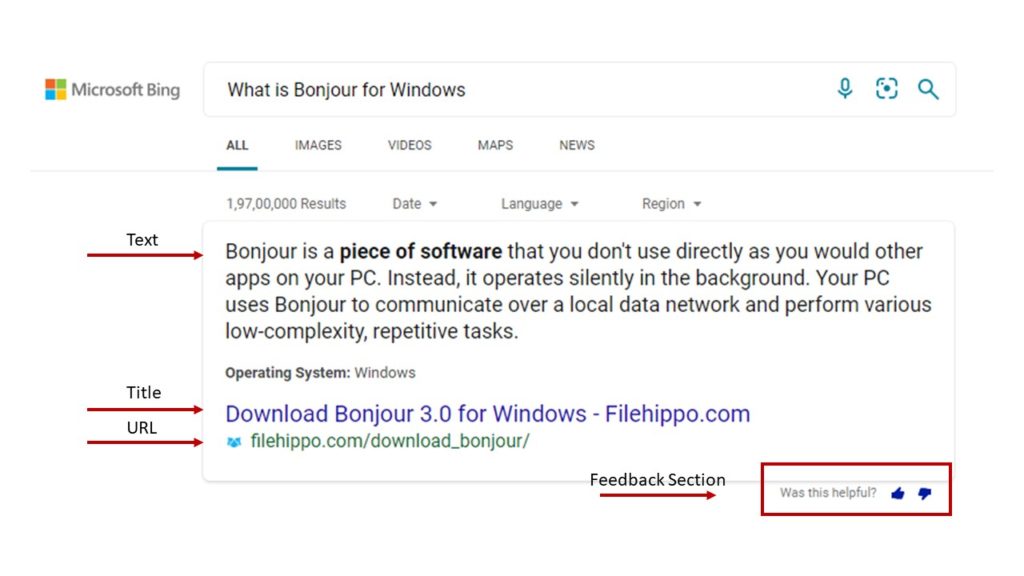
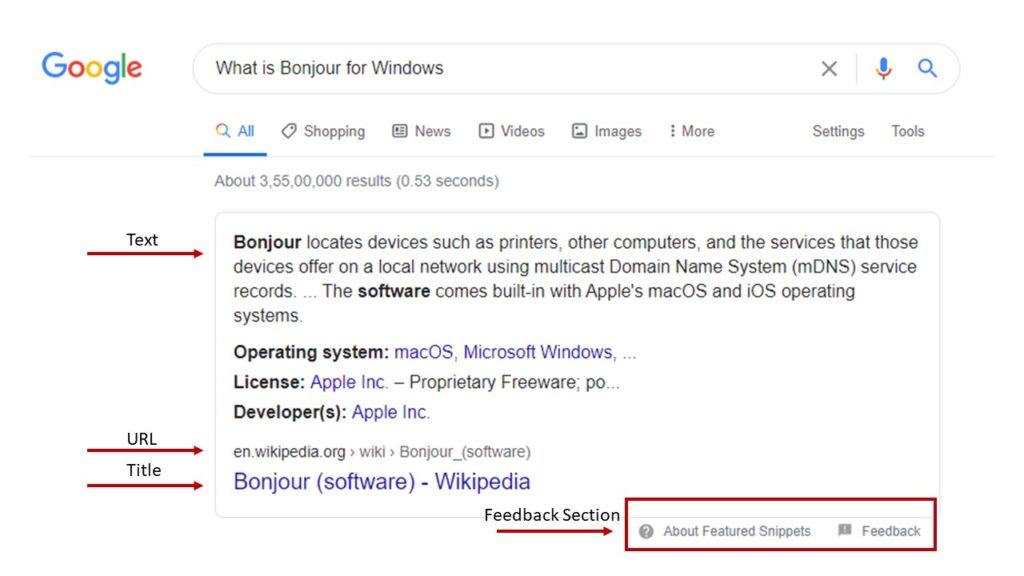
User Feedback:
Both Google and Bing encourage users to submit feedback for the featured search results.
Bing uses simple like or dislikes buttons embedded with different forms to report feedback.
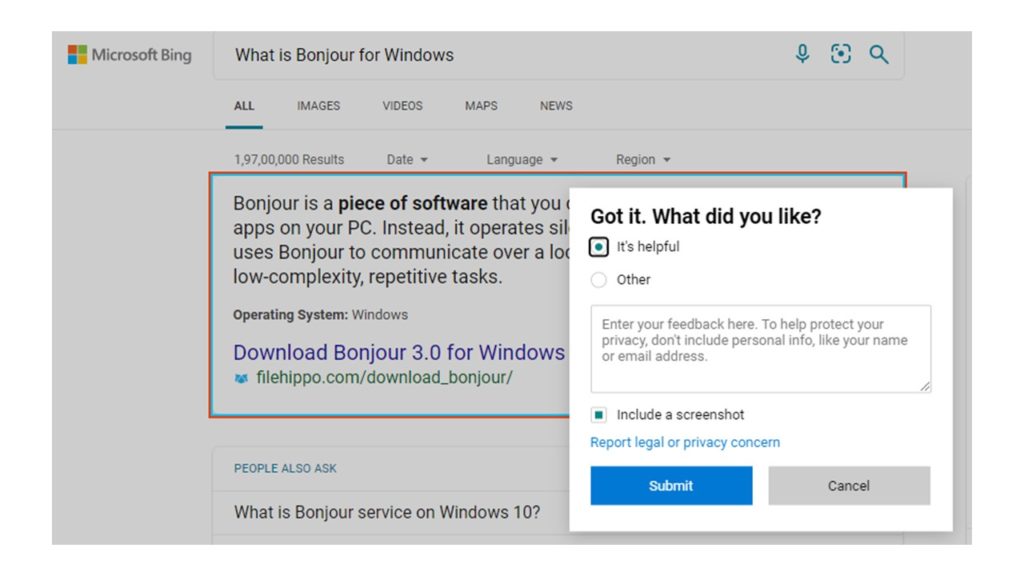
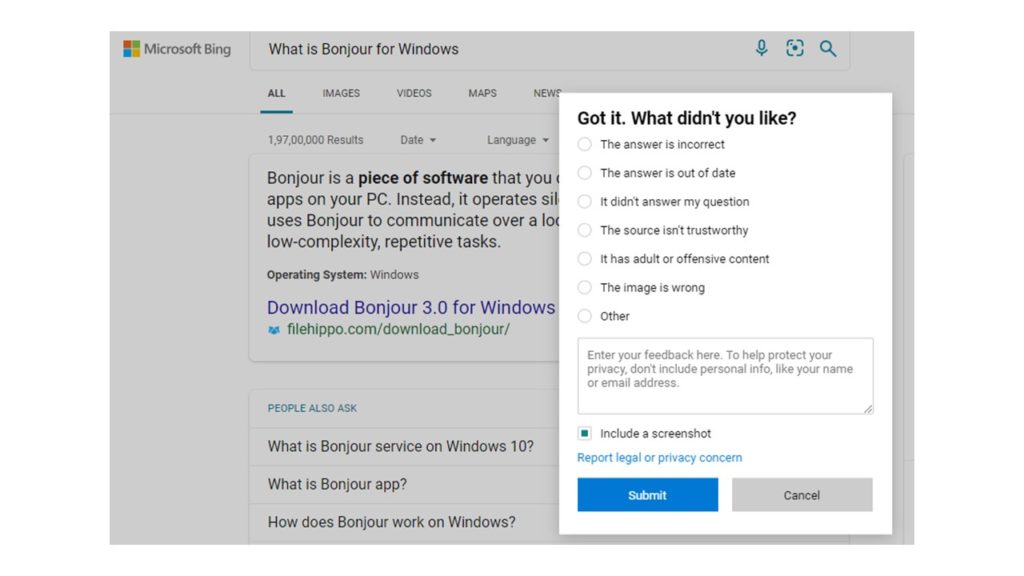
Google whereas allows its user to submit their comments or suggestions or even submit legal removal requests via a single feedback form. Refer to the below image:
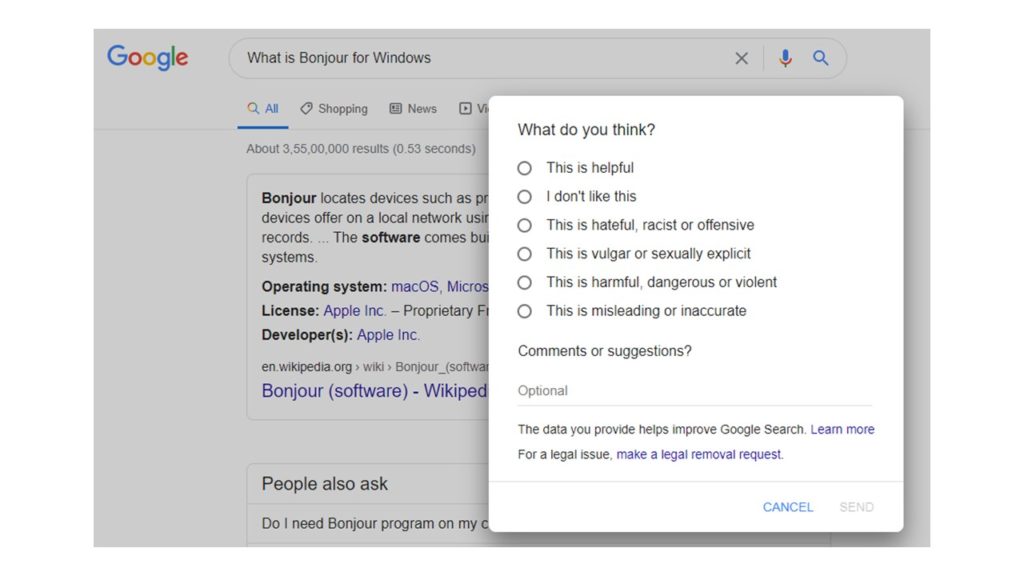
Bing and Google Featured Snippet Types:
You can find Bing Q&A and Google featured snippets in different types.
Some common display types include:
- List: Both Bing and Google may return a summarized list snippet to meet the user requirement. For example, refer to the screenshot below
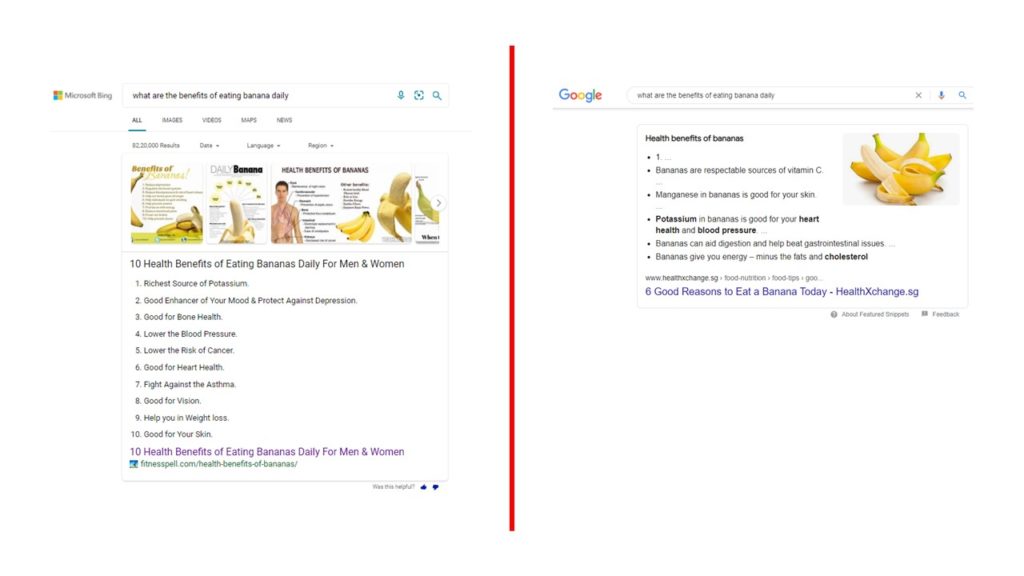
- Paragraph: Both Bing and Google may return a summarized paragraph from a webpage that best meets the user query. For example, refer to the screenshot below
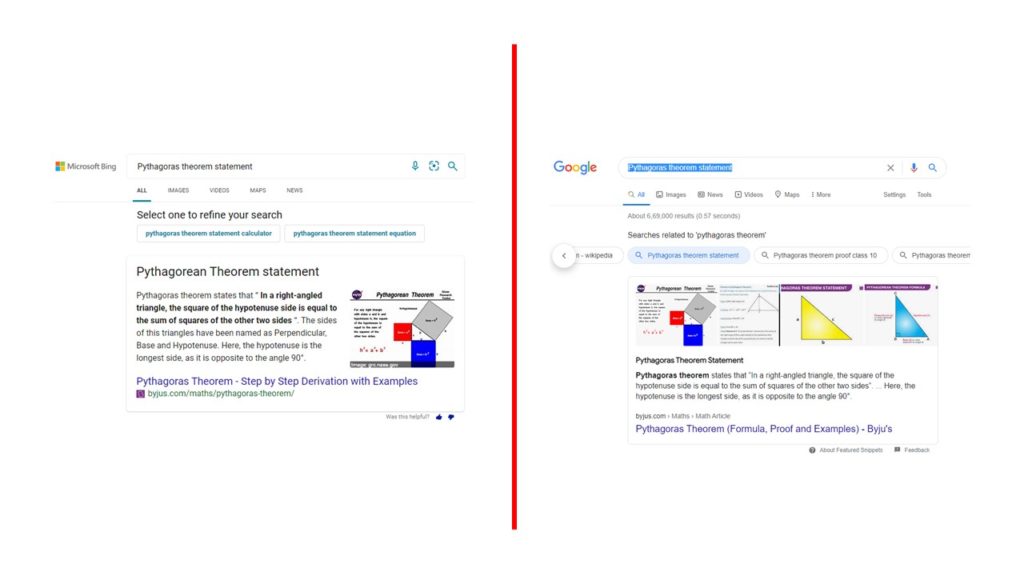
- Quick Short Answers: Both Bing and Google may return quick short answers for user queries. For example, refer to the screenshot below
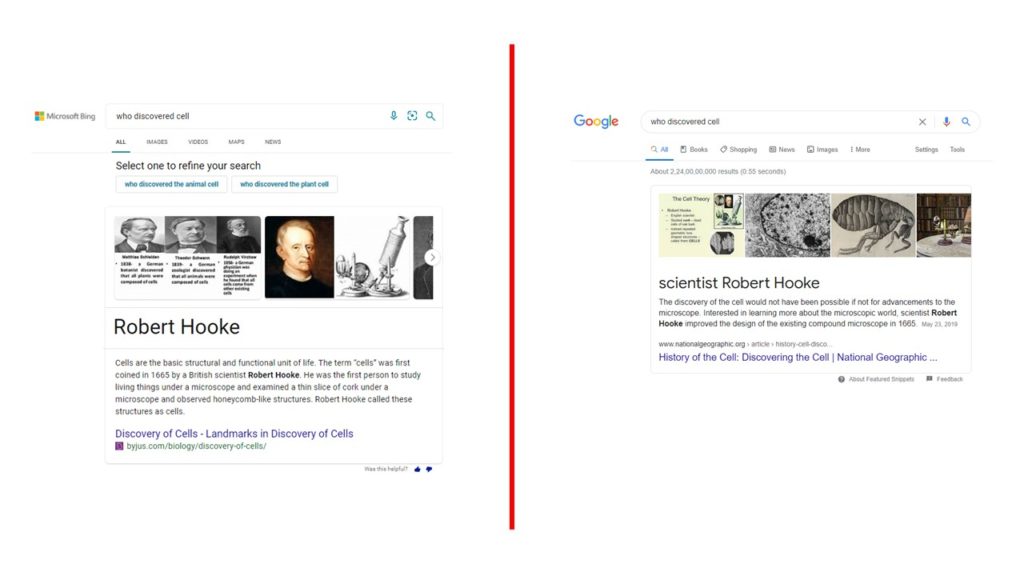
Google also returns featured snippets in the table and accordion types. For example,
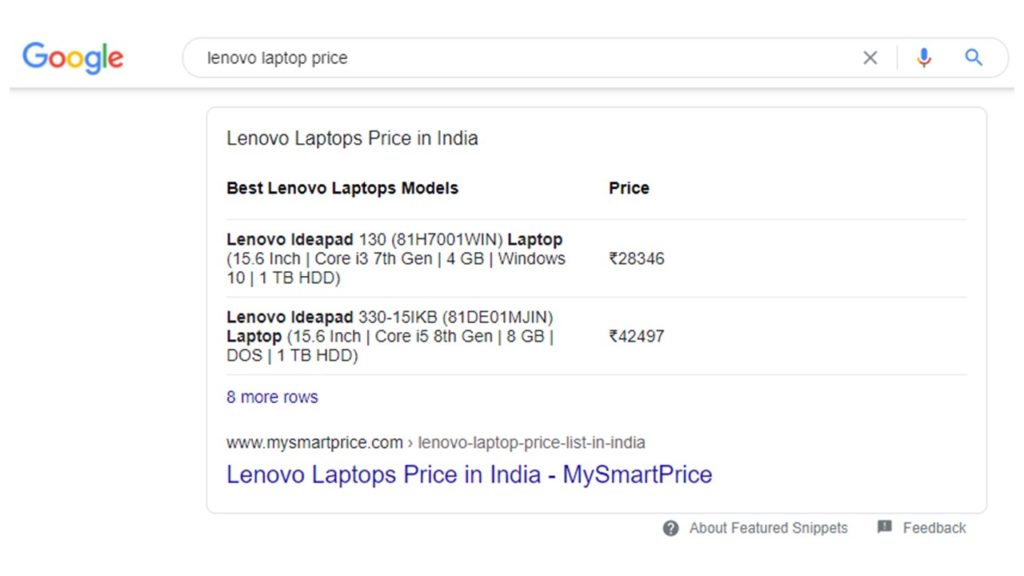
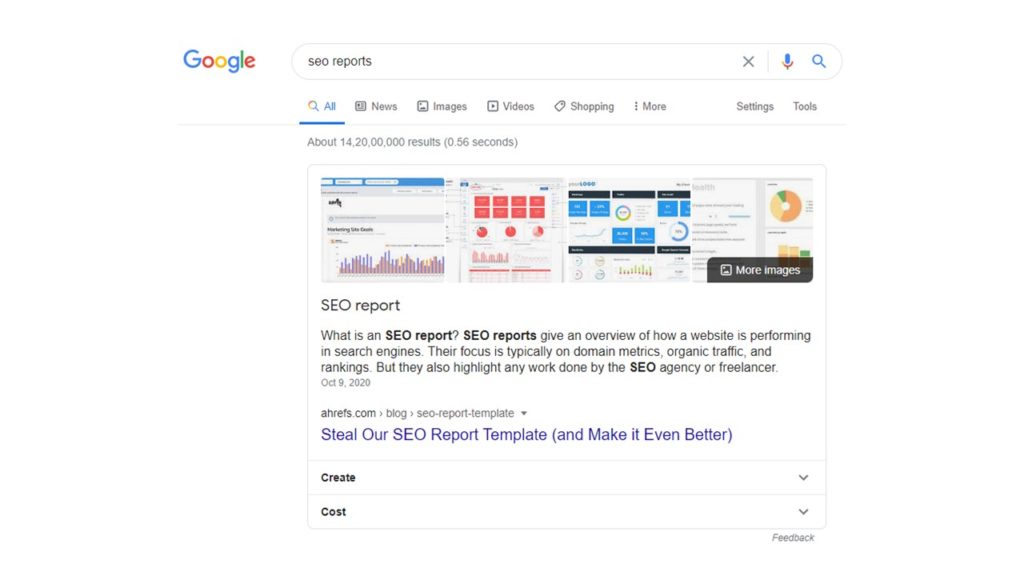
Bing leads in introducing AI-powered, latest intelligent search features to provide more comprehensive information to the users’ queries. Top unique search features returned by Bing include.
List of summaries from multiple sources:
Bing features a list of comprehensive multiple summarized answers from different sources. The search engine brings together the most relevant result from across many resources to meet its user requirement. A search feature saving time for users to select the sources. For example, if I search for facts about kale, it returns.
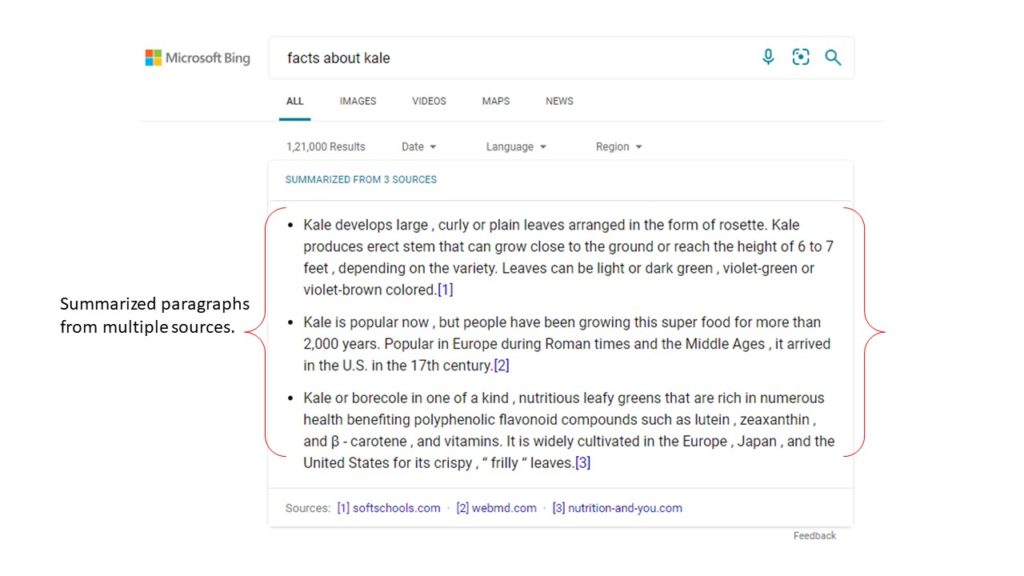
Carousel of different answers in table format:
Bing gathers information from around the internet. It can show a carousel of results from multiple sources, an approach to showcase different views, perspectives, and answers for the same query. For example, when searching is coffee good for heart health, Bing returned.
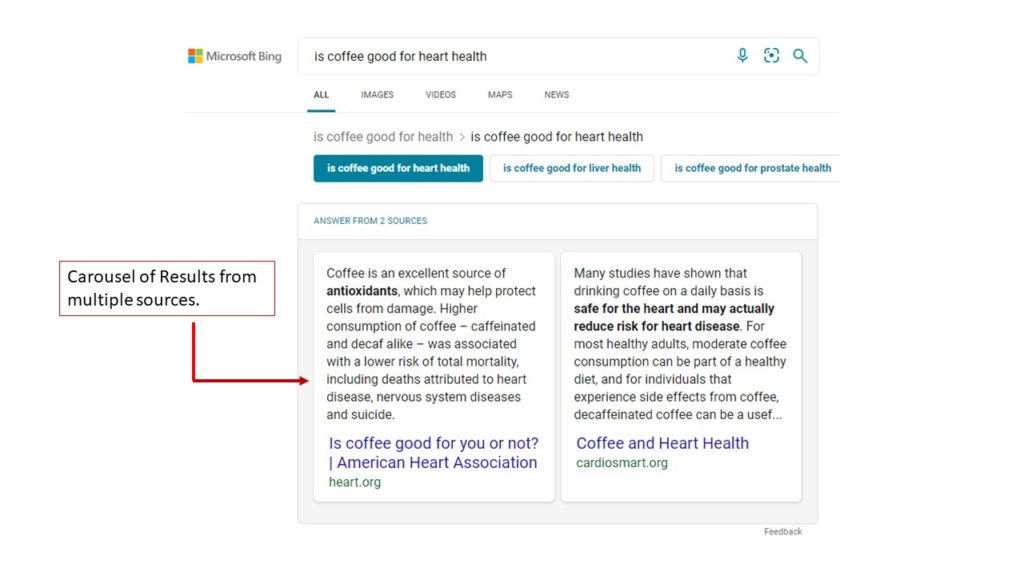
Featured Accordion Format:
Bing can return your web page data in an accordion format. A unique display format to get highlighted in the search result.
For example, if I search for megalodon, it returns.
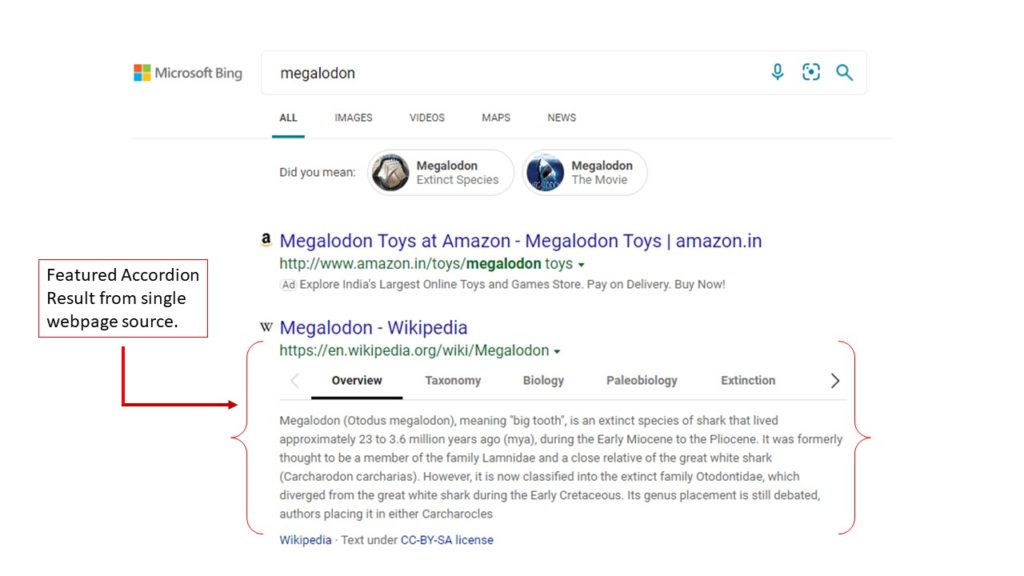
Bing and Google Search Working:
Search engines crawl, index, sort, and return results from the internet data gathered. Bing and Google understand the users want to get quick answers to their queries. And delivering search results in an easy to read format enhances the users search experience.
Q&A, and featured snippets with distinguished and unique formats, make it easier for users to find the best answers quickly. These AI-based search results are truly living up to their name.
Both search engines adopt the same artificial intelligence technology with different approaches to deliver optimum search results. Natural Language Processing is the core of search algorithms to understand and interpret the user language to the machine and output the best-refined search results.
Conclusions:
Evolution is not a new norm for the web world. The most constant nature of the internet is evolving. A billion web pages are being created across the internet every day. Search engines also need to update their information data sources and search results and formats.
While some of the queries may need frequently updated information. Others may require static historical data retrieval. Depending on the nature of the user’s requirement, the search engines try to deliver the best results while ensuring the time and location context of the search.
Evolving with new improved and enhanced intelligent search features, Google and Bing have made knowledge distribution and acquaintance simpler for both rich and poor.
WeCT team can help you with your SEO efforts. Check our local SEO services for New York.
Featured Image Credit: SEO Vectors by Vecteezy
Recommended for you
Re-imagining businesses through experiences
We are a full-service digital agency with leading capabilities across digital – from web design to development, branding to marketing, cloud transformation to security. We create human-centered and future proof experiences – enabling transformation, ensuring sustainable growth.

